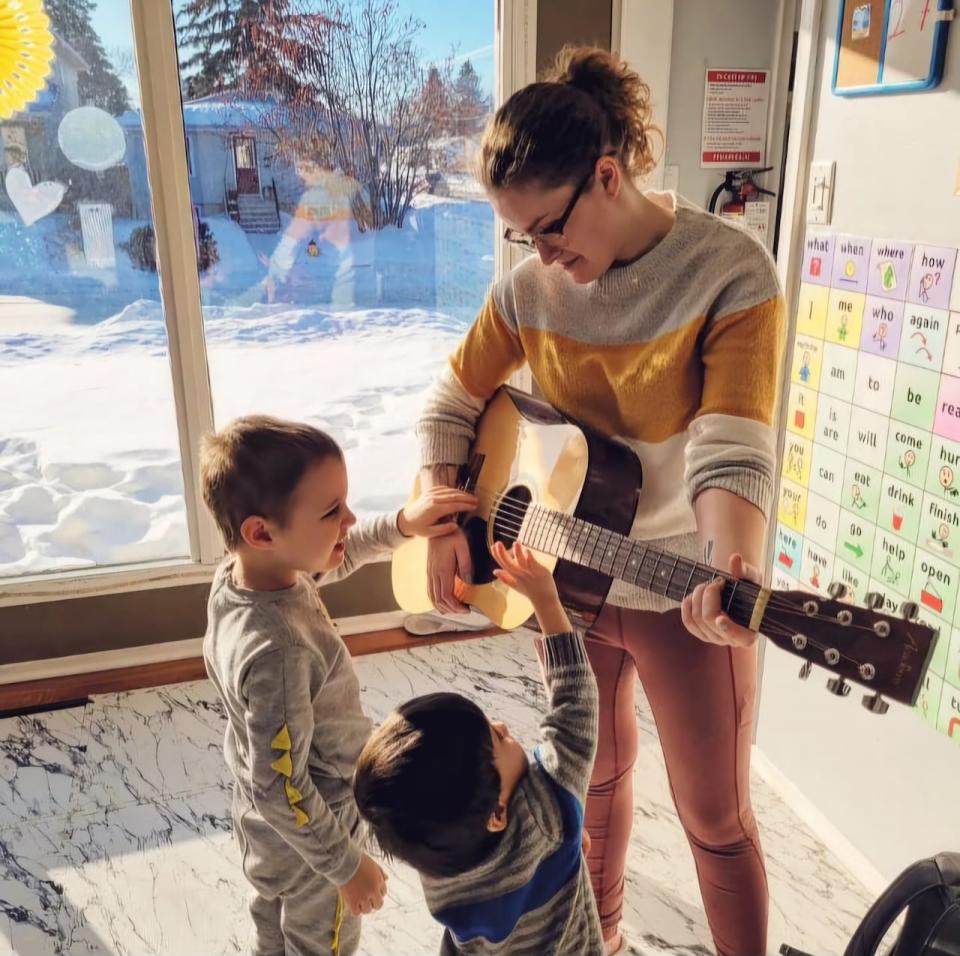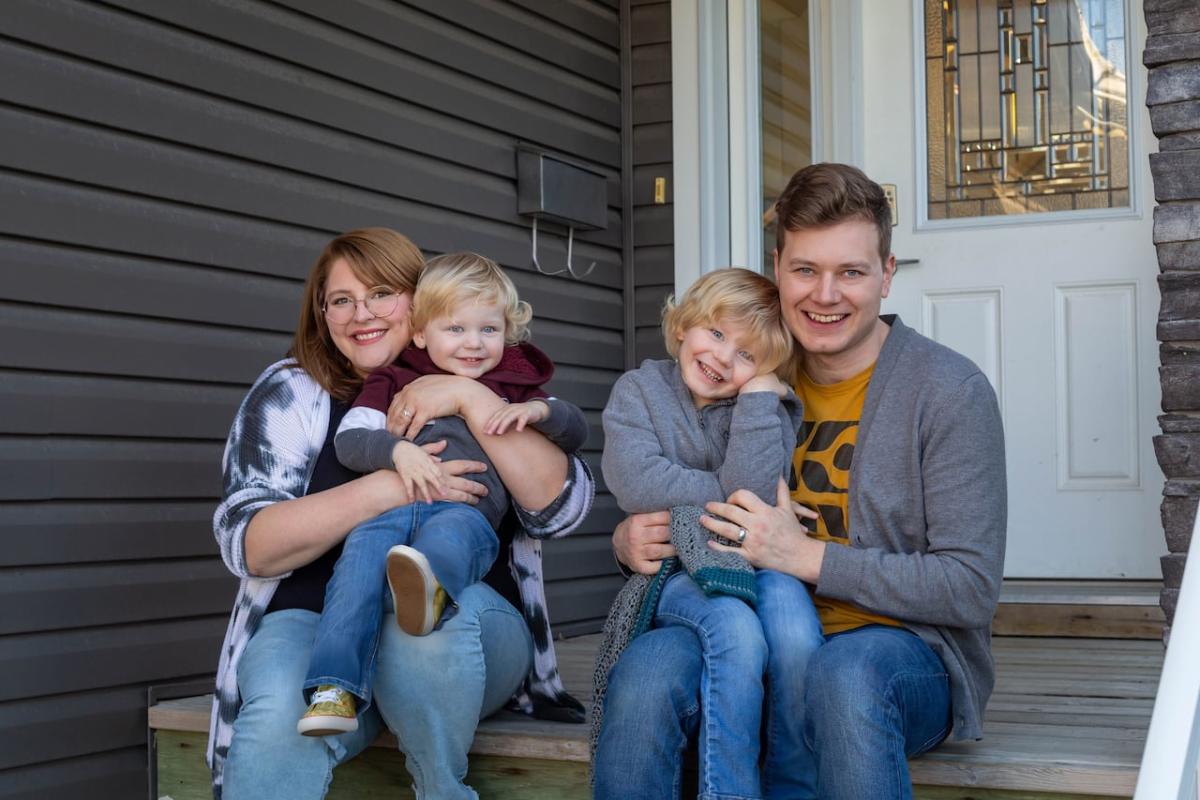A Saskatoon mother and the owners of a daycare for neurodivergent children are calling for the provincial government to do more to increase child care spaces for children with complex needs.
Alicia Mann said she was “bogged down with worry” for four months searching for child care for her eldest son after his previous daycare terminated his spot. When they found out four-year-old Felix has autism, they would tell her they couldn’t accommodate him, she said.
“It was crushing,” Mann told CBC’s Saskatoon Morning last week. “It makes you feel as if your child is a burden and not someone who should be celebrated.”
Then she found Lavender Smiles Daycare and enrolled Felix in April 2023, and then his younger brother Linus later that year. She said the specialized care has transformed the two boys.
“They are so confident, they are so happy. You just see a change in them that they are getting their needs met,” Mann said.
“It is absolutely freeing. You can just be a person outside of being a caregiver for your child.”
Many parents of kids with complex needs are in the same boat as Saskatchewan struggles to open enough regulated, $10-a-day daycare spaces to meet demand, said Lavender Smiles co-owner Brianna Dodd. According to a report for the Canadian Child Care Federation, 238 children of more than 8,500 enrolled in licensed child care received special needs or disability support funding as of March 2023.
Dodd said she and her business partner Nami Sharma opened the dayhome, which is believed the be the city’s only specialized centre for neurodivergent children, in 2021 because they saw many families like Mann’s struggling to find a space, let alone one that would accept their child.
The daycare now has 12 spots and four full-time staff members trained to work with children with autism, Downs syndrome, ADHD symptoms or other behavioural challenges. Dodd said this allows them to give specialized attention and care to each individual child.

Brianna Dodd, right, says Lavender Smiles is like any other daycare, with a few sensory and equipment modifications to help children with autism, Down syndrome, ADHD and behavioural issues be themselves and have their needs met. (Submitted by Brianna Dodd)
The space is filled with sensory walls, toys that can be adapted or hung on wheelchairs, communication aides and a large changing table for older children as well as toddlers.
“We are like any other daycare. We have a home, we have toys, we have elements of play, we have elements of exploration,” said Dodd. “I think the biggest difference at our daycare is our mindset and our acceptance.
“I think that’s really important for us, is to make our daycare as diverse as possible and have as much open space for the children to just be themselves.”
But the daycare has a long waitlist, and Dodd and Mann say the province needs to do more to expand child care spaces for children with complex needs.
Dodd said the Ministry of Education’s grants for specialized or one-on-one child care for children with complex needs should be increased, because the current maximum of $2,000 per month doesn’t cover minimum wage for a full-time staff member to provide that care.
In a statement, the ministry did not respond to questions from CBC News about whether it was considering increasing the levels of funding available, but stressed that it has several initiatives to help early childhood educators meet the needs of children with complex needs.
“Government is committed to providing access to quality early learning and child care opportunities that support positive child development, provide access to early education and support parents’ ability to work,” a spokesperson wrote in an email Thursday.
Dodd and Mann also encouraged other daycare providers to take advantage of the grants available to train staff to care for these children, and be more flexible with the children they accept and how they set-up their spaces to support them.
“If we are saying that there should be inclusion in education, then it should be from the very get go. It should be with our daycares and the government should be putting their money behind that,” said Mann.

